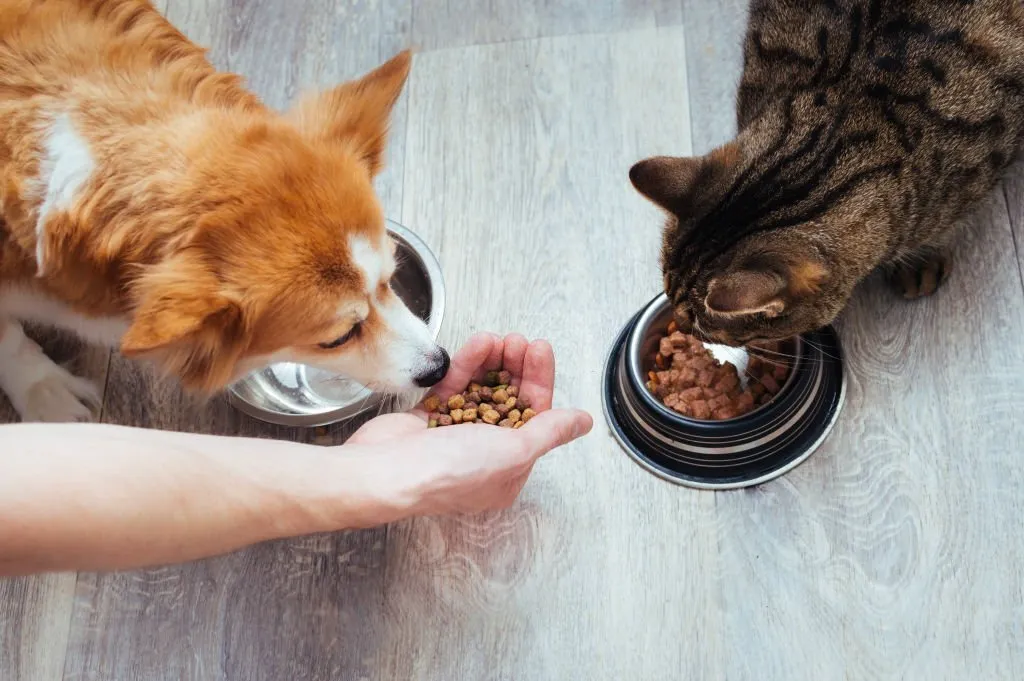Introduction to Canine Digestion
The digestive system in dogs is responsible for breaking down food into nutrients that can be absorbed and used by the body. The process begins in the mouth, where food is chewed and mixed with saliva, which contains enzymes that begin to break down carbohydrates. From there, the food travels down the esophagus and into the stomach, where it is mixed with stomach acid and enzymes that further break down proteins.
The partially digested food then moves into the small intestine, where it is mixed with bile from the liver and enzymes from the pancreas that break down fats, carbohydrates, and proteins. Finally, the nutrients are absorbed into the bloodstream and transported to the rest of the body.

Factors that Affect Digestion in Dogs
Several factors can affect a dog’s digestion, including age, breed, size, health conditions, diet, and feeding habits. Puppies and senior dogs may have slower digestion than adult dogs due to their developing or aging digestive systems. Certain breeds may be more prone to digestive issues than others, such as brachycephalic breeds like pugs and bulldogs who may have trouble swallowing or digesting food properly. Health conditions like pancreatitis or inflammatory bowel disease can also affect digestion.
Diet and feeding habits can also play a significant role in a dog’s digestion. Dogs who eat too quickly or too much at once may experience digestive upset or even bloat, a life-threatening condition where the stomach twists on itself. Feeding a diet that is high in fat or low in fiber can also lead to digestive issues.
The Role of Enzymes in Dog Digestion
Enzymes are proteins that help break down food into smaller molecules that can be absorbed by the body. There are several types of enzymes involved in dog digestion, including amylase, protease, and lipase. Amylase breaks down carbohydrates, protease breaks down proteins, and lipase breaks down fats.
Enzymes are produced by various organs in the body, including the pancreas and small intestine. Without enzymes, food would not be broken down properly and nutrients would not be absorbed efficiently.
How Long Does it Take for a Dog to Digest Food?
The average digestion time for dogs is around 8-10 hours from the time they eat until waste is eliminated. However, this can vary depending on several factors such as age, breed, size, health conditions, diet, and feeding habits.
Factors that can affect digestion time include the size of the meal (larger meals take longer to digest), the type of food (wet food may digest faster than dry kibble), and individual differences in metabolism.
Differences in Digestion Time Between Different Types of Dog Food
Dry kibble typically takes longer to digest than wet food because it requires more water to break down properly. Raw diets may also take longer to digest because they contain more fiber than processed foods.
However, it’s important to note that digestion time is just one factor to consider when choosing a type of dog food. Other factors such as nutrient content and quality should also be taken into account.
The Importance of Monitoring Your Dog’s Digestion
Monitoring your dog’s digestion is important for their overall health and well-being. Signs of healthy digestion include regular bowel movements that are well-formed and easy to pass, no excessive gas or bloating, and no vomiting or diarrhea.
Signs of digestive issues include constipation or diarrhea that lasts for more than a day or two, excessive gas or bloating, vomiting or regurgitation after eating, loss of appetite or weight loss.
If you notice any signs of digestive issues in your dog, it’s important to consult with your veterinarian to rule out any underlying health conditions.
Tips for Promoting Healthy Digestion in Your Dog
Feeding a balanced diet that is appropriate for your dog’s age, breed, size, and activity level is key to promoting healthy digestion. Providing plenty of fresh water is also important to keep your dog hydrated and aid in digestion.
Avoiding table scraps and human food can help prevent digestive upset and maintain a healthy weight. Regular exercise can also help keep your dog’s digestive system functioning properly.
Conclusion
Understanding your dog’s digestion is important for their overall health and well-being. Factors such as age, breed, size, health conditions, diet, and feeding habits can all affect digestion time and efficiency.
Enzymes play a crucial role in breaking down food for absorption into the body. Monitoring your dog’s digestion for signs of health or issues is important for early detection and treatment.
Feeding a balanced diet appropriate for your dog’s needs along with providing plenty of water and regular exercise can help promote healthy digestion and overall wellness for your furry friend.



